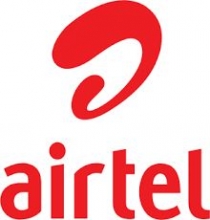Pradipt Kapoor
CIO, Airtel
Data to Decisions
Airtel is a leading global telecommunications company with operations in 18 countries. Headquartered in New Delhi, India, the company ranks among the top 3 mobile service providers globally in terms of subscribers.
Airtel is one of the largest mobile operators in the world. As is the case with enterprises this large, there are a variety of products and services offered to customers. Services include mobility, TV, broadband, music and banking – and it's all under one roof. The amount of data generated by 400 million subscribers is eye-popping. In fact, Airtel processes as many records in a single day as most companies do in an entire month. Underlying the enterprise are myriad systems – most of which didn’t communicate with each other. For instance, there are Business Support Systems (BSS) for customer data, sociographic device and type-related data. Additionally, there’s the Operations Support System (OSS) that contains an extraordinary amount of network data. In order for Airtel to achieve a comprehensive understanding of consumer behavior and provide a unified experience for customers, Airtel needed to tear down the walls separating systems.
To propel its digital transformtion, Airtel made massive new investments in modern infrastructure and applications. In order to manage, leverage and analyze data, silos were eliminated. Airtel's “Digital Intelligence” project provides an unprecedented level of real-time service to over 400 million customers. Instead of siloed data from different business units, the Airtel system now uses a holistic set of historical data and real-time triggers to develop a geographic, demographic footprint for each customer. The company is often able to figure out how to predict customer interest and frustrations – and be prepared with Next Best Action (NBA) recommendations. The company is building one of the largest active-active cloud infrastructures in the world. Resilience, redundancy and low latency are critical success factors.
Changing the operating culture in a large organization is always a daunting task. Changing the operating culture and overhauling the technology infrastructure at the same time while helping the company achieve aggressive growth targets is extraordinarily difficult. Yet, that is precisely what Airtel has accomplished. The business impact of Airtel’s Digital Intelligence project is impressive. Airtel has grown to become the third largest provider of mobile services globally. Customer satisfaction is at an all-time high, thanks in part to the predictive technology that enables Airtel to anticipate opportunities to assist customers during a purchase, and resolve issues as they occur. For instance, Airtel can often resolve a customer’s complaint before it has been reported. Additionally, Airtel’s project has resulted in a robust and extensible architecture that yields extraordinary flexibility. A growing consumer base, thriving enterprise customers, real-time service performance, a network that is always available, and a global position as one of the top three telecoms in the world – all at greatly reduced hardware costs. These are impressive results for Airtel’s Digital Intelligence project.
Airtel’s innovative new data architecture has led to the following resultes
- Reduced data-centric hardware costs by 40-90%
- Handled 300% application traffic growth with ease
- Achieved an industry-leading sub-millisecond latency responsiveness and performance
- Greater than 99.999% uptime for business applications
- Applications can rapidly scale from 10’s to 100’s of millions of subscribers
- Combined previously siloed data from 400 million users
- Process more than 100 billion records in one day
- Experience resilient persistence of 15,000 - 25,000 transactions per second
- Combined petabytes of phone/web/mobile device edge data into unified customer profiles that are accessible in milliseconds
- Reduced customer churn through real-time usage analysis
- Increased cross-sell and up-sell through real-time personalization
Among the technologies supporting this project, Airtel utilized the Aerospike real-time data platform. This enables Airtel to act instantly across billions of transactions while reducing server footprint by up to 80 percent. Aerospike powers real-time Airtel applications with predictable sub-millisecond performance up to petabyte scale with five-nines uptime with globally distributed, strongly consistent data.
The disruptive factor is the unprecedented understanding of customer behavior that has resulted from Airtel's transofrmation. Understanding customer behavior involves far more than looking at obvious trends. It requires painstaking and meticulous examination of every piece of data. Often, it’s the smallest clues that yield the biggest new developments. Airtel has deployed cutting-edge big data capabilities to process hundreds of billions of records every day. This allows the company to provide exceptional real-time service for today’s customers, as well as sift for the data nuggets that will result in tomorrow’s new products and services. Deep learning is essential to this process. Consequently, AI and ML are fundamental to everything Airtel does in 2021.
Airtel created “the Digital Lab.” It became the digital arm of the company and the powerhouse for developing the people and tech stacks required for the company's effective digital transformation. The creativity and team spirit that sprang from the Digital Lab will continue to ensure that Airtel is constantly innovating and looking for cutting-edge ways to best serve its customers.
About Airtel

Airtel is a global telecommunications company with operations in 18 countries. The company ranks amongst the top three mobile operators globally and its mobile network covers a population of over two billion people. At the end of March 2021, Airtel had over 471 mn customers across its operations.

